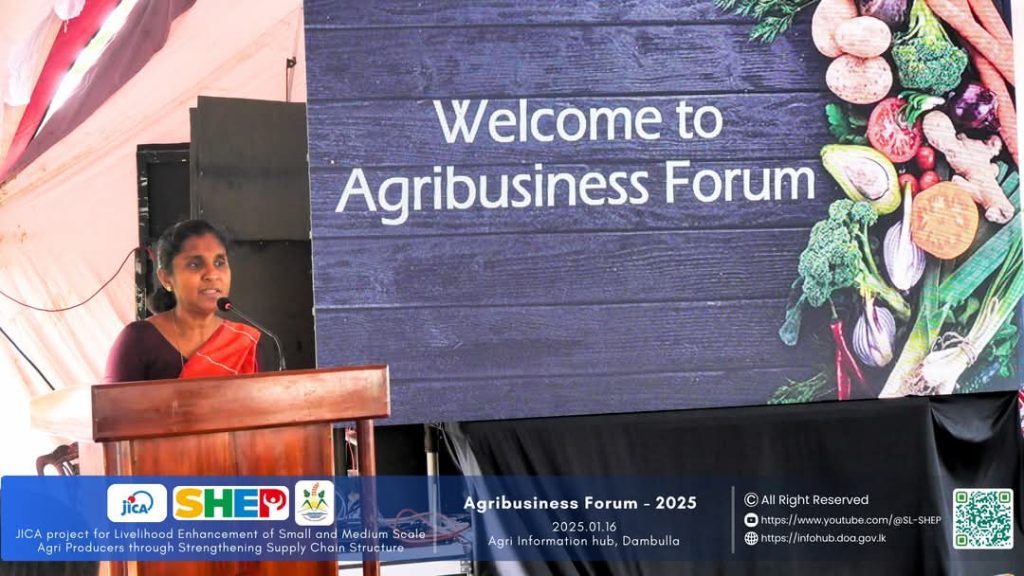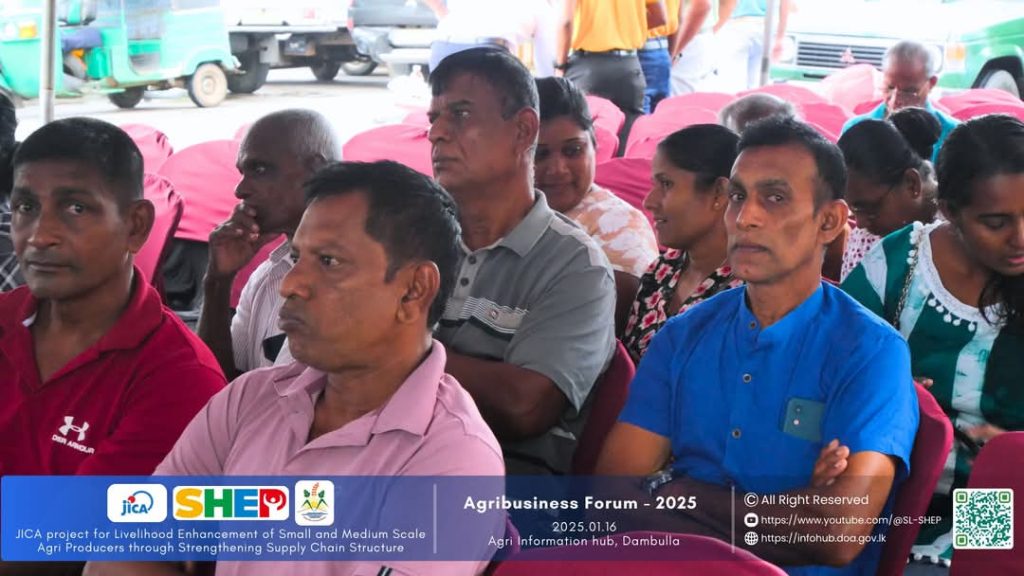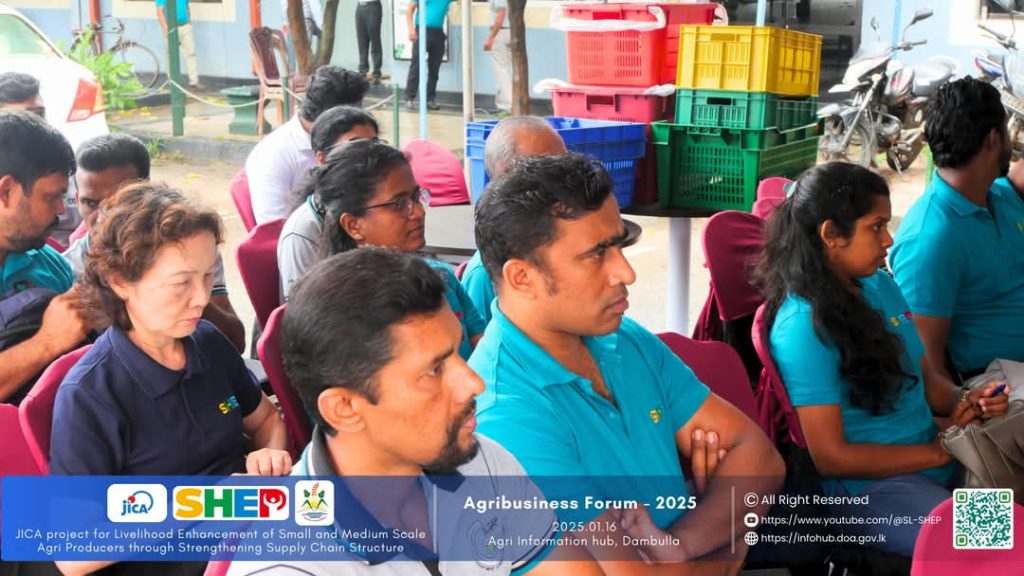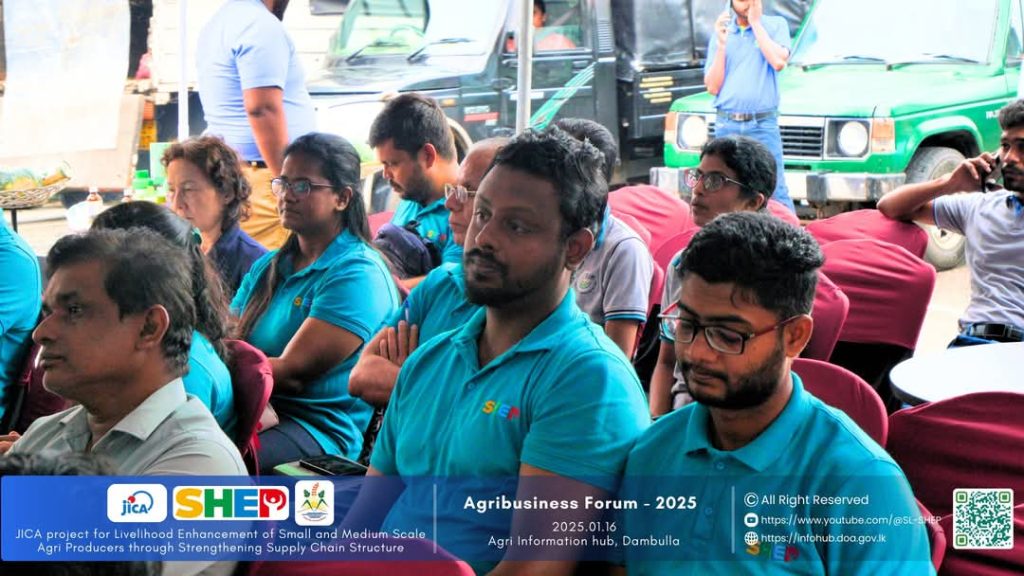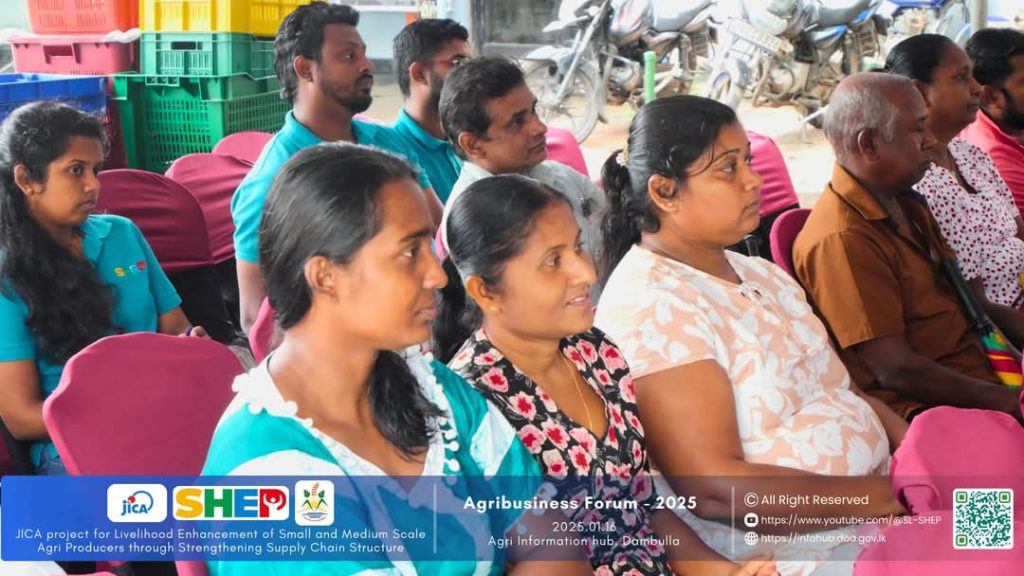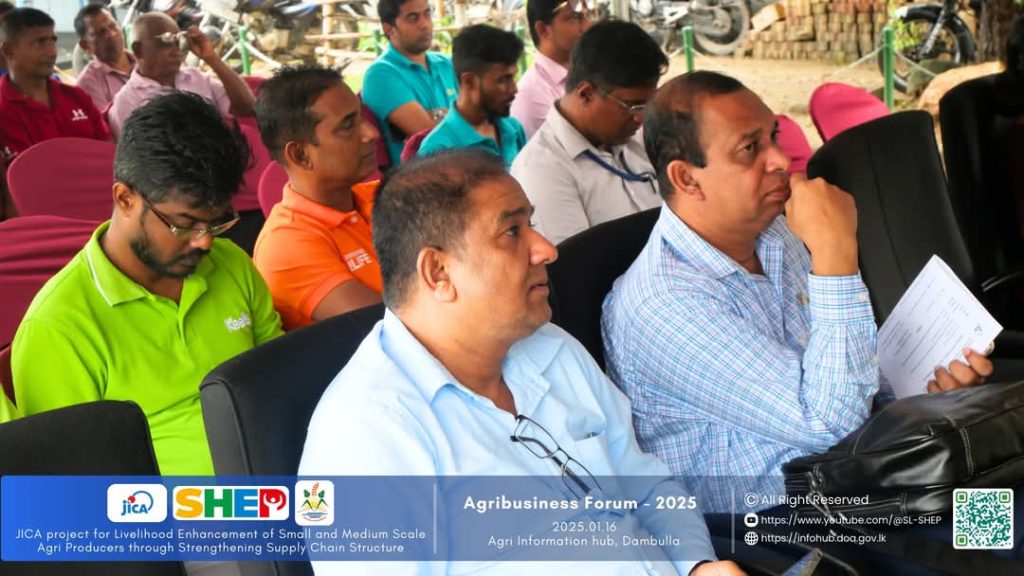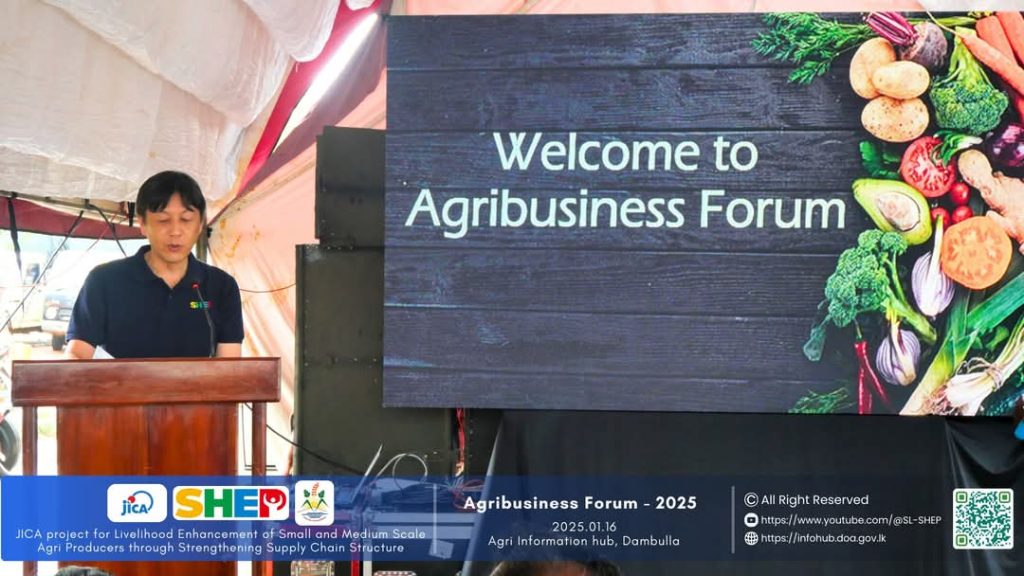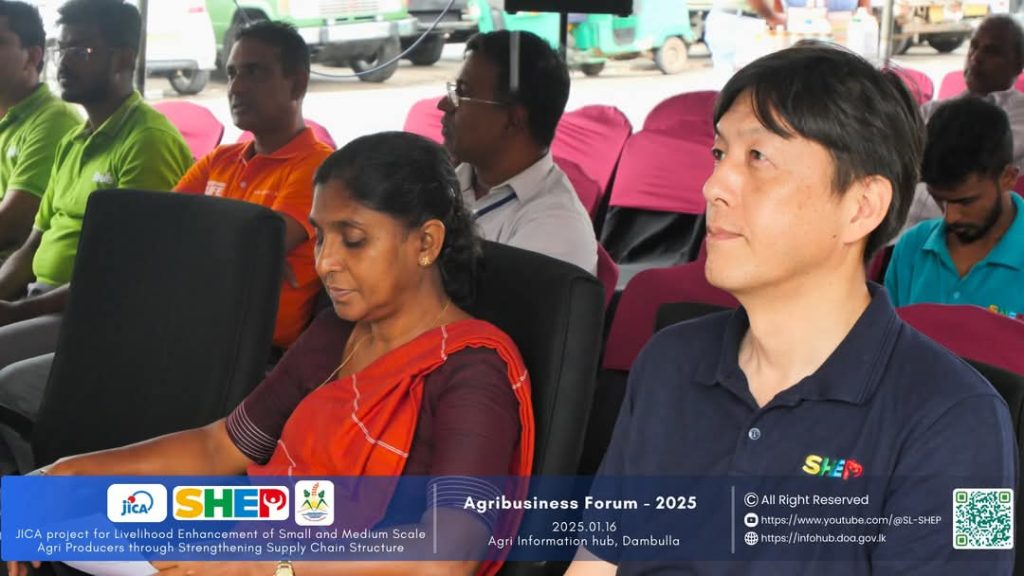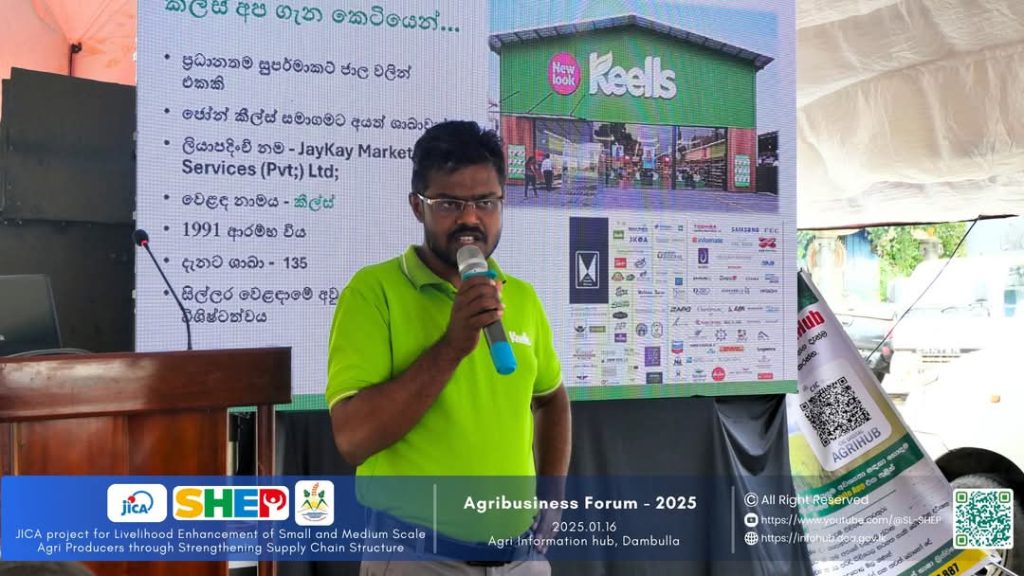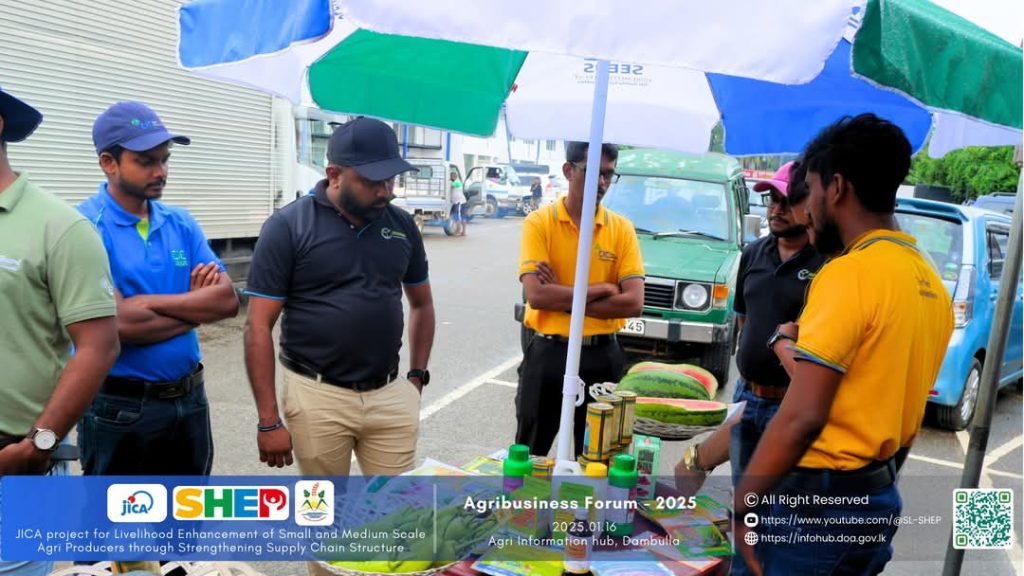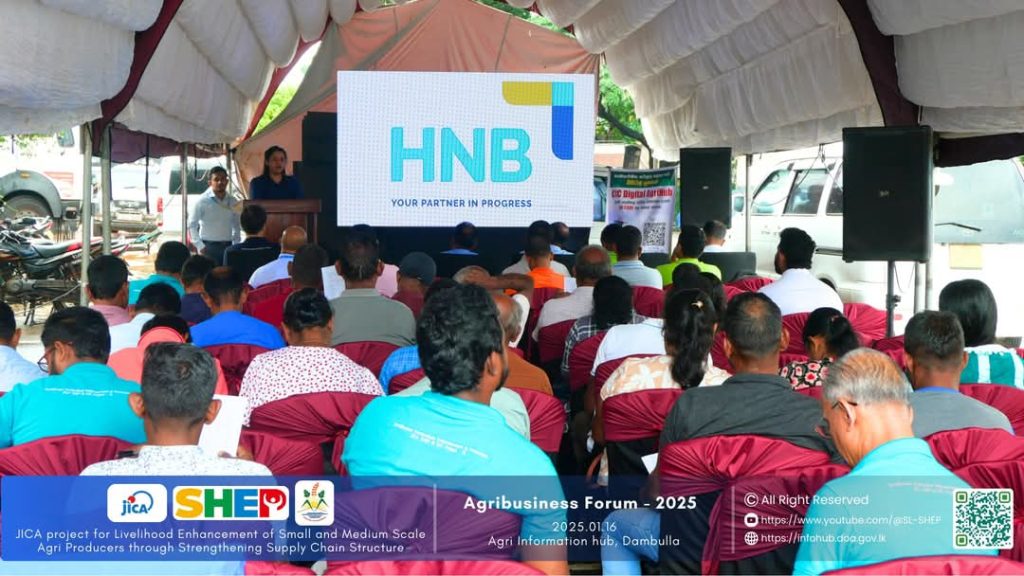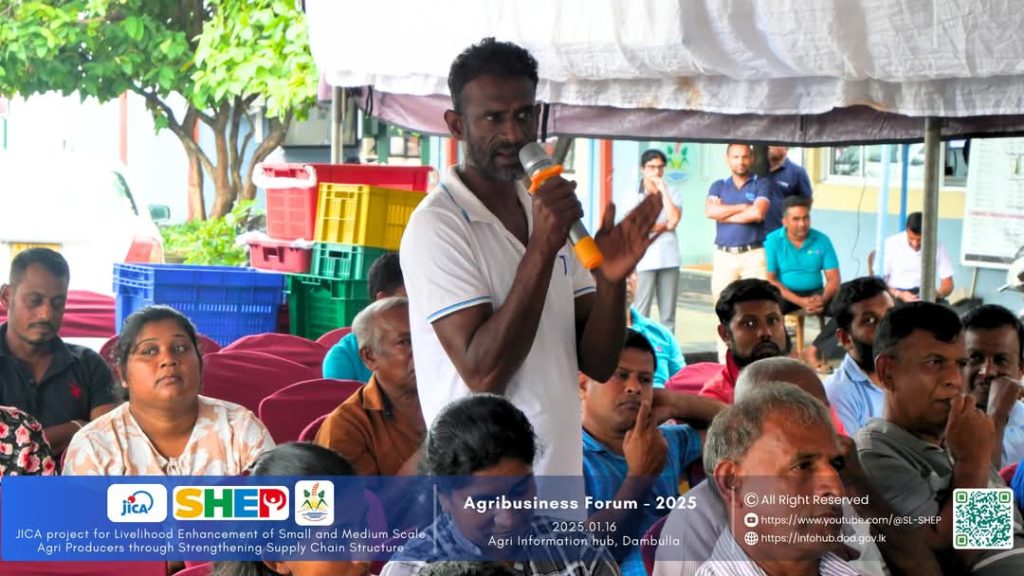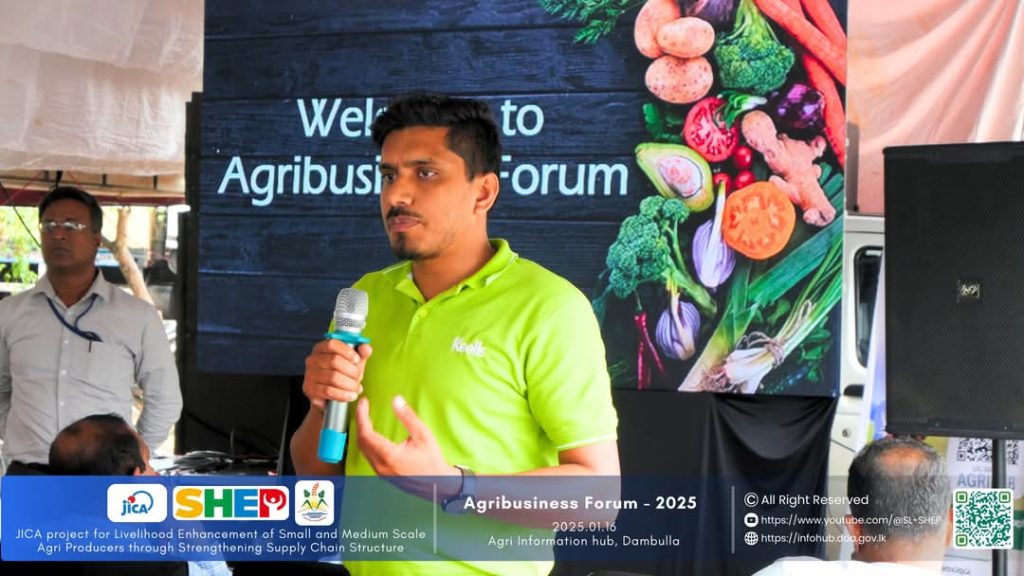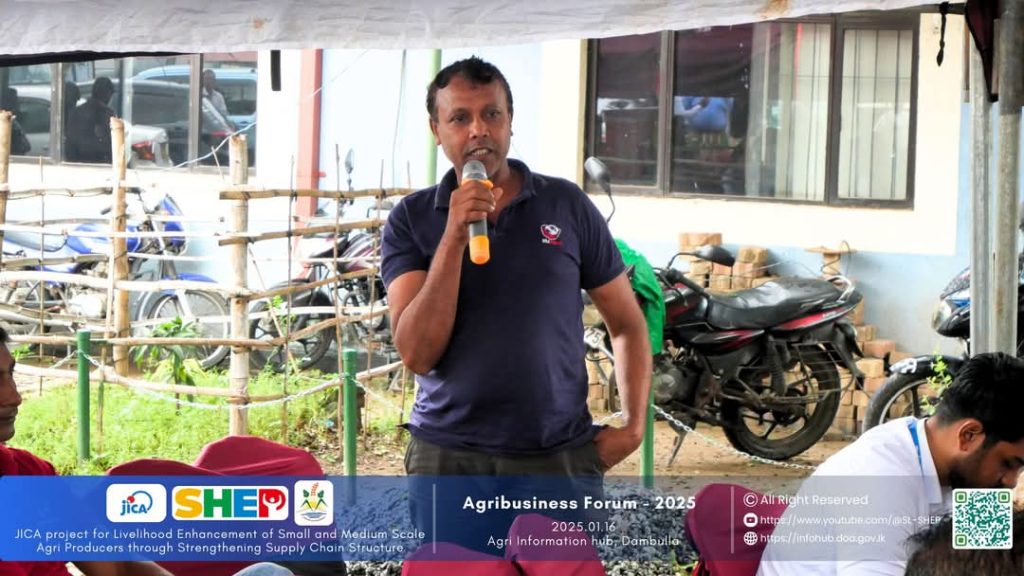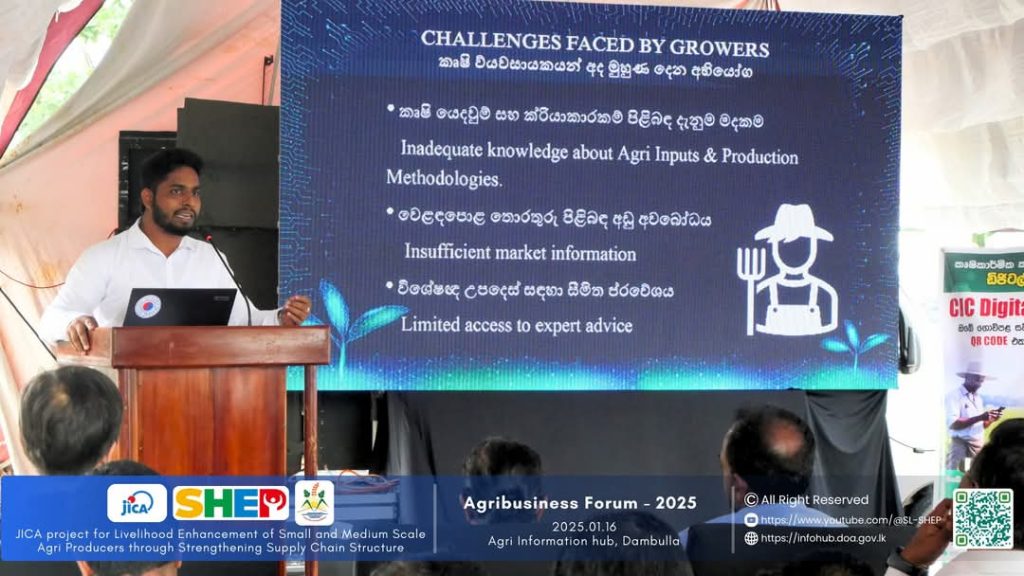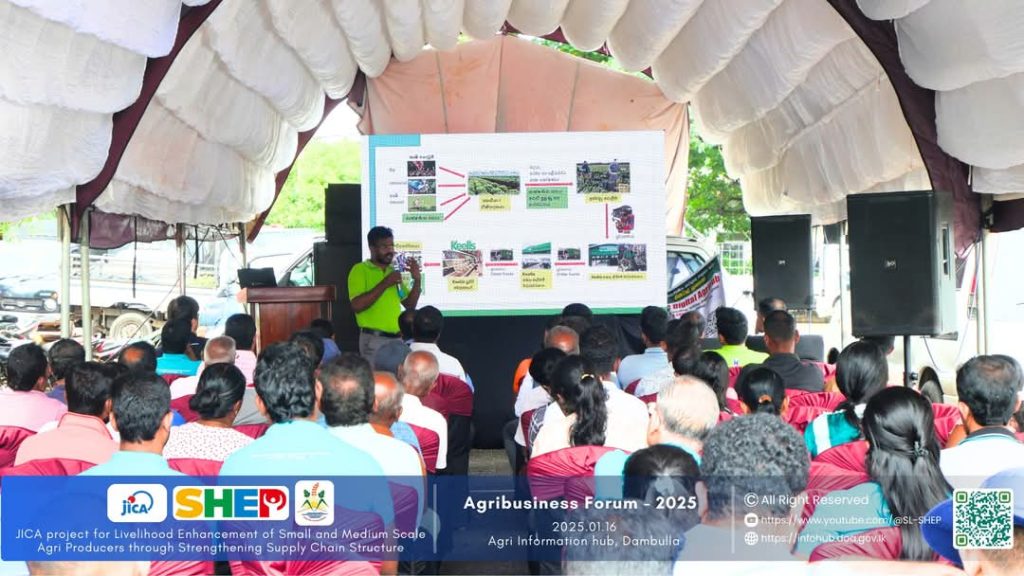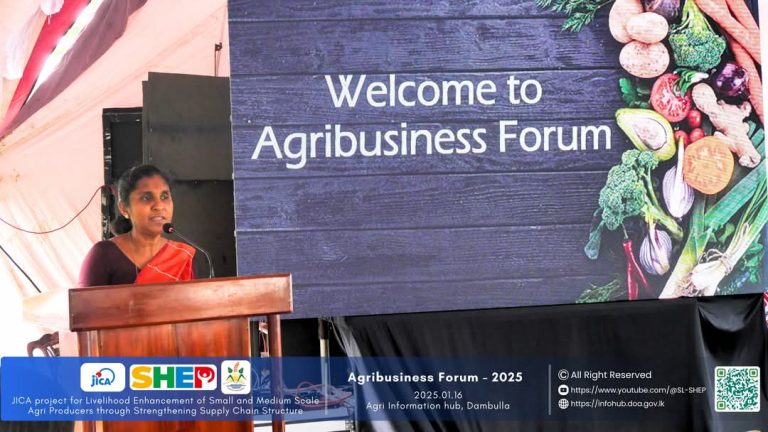On January 16, 2025, the first Agribusiness Forum, aimed at strengthening the supply chain, was successfully held at the Agri Information Hub and Seed Sales Center in Dambulla. The agribusiness forum brought together farmers, traders, and agricultural extension officers to focus on raising awareness of effective post-harvest management practices for enhancing the vegetable supply chain.
The event saw the participation of key institutions, including the National Institute of Post Harvest Management (NIPHM), Keells, Phoenix, CIC, and the Hatton National Bank (HNB). These organizations provided valuable insights into reducing post-harvest losses, selecting appropriate plastic crates for different vegetable crops, utilizing technical solutions, and exploring financial support options.
The National Institute of Post Harvest Management delivered an in-depth presentation on strengthening the supply chain by minimizing post-harvest losses both qualitatively and quantitatively. And Keells, a leading supply chain organization, shared their expertise on managing vegetable and fruit supply chains efficiently, reducing post-harvest losses to 4-5%.
Phoenix emphasized the importance of using plastic crates for transporting vegetables and fruits instead of conventional net bags, highlighting the benefits in terms of reducing post-harvest losses. CIC also introduced their technical solutions, particularly the mobile app containing agricultural information, to the farmers.
Hatton National Bank discussed crop credit facilities and other financial support policies available to farmers, helping them access the resources needed to enhance their farming practices. Additionally, the forum introduced the newly created web page for the Agricultural Information Hub, which serves as a valuable resource for accessing market price information.
This forum proved to be an invaluable opportunity for farmers to gain a deeper understanding of post-harvest management and how reducing post-harvest losses can lead to increased profitability and sustainability in agriculture.
